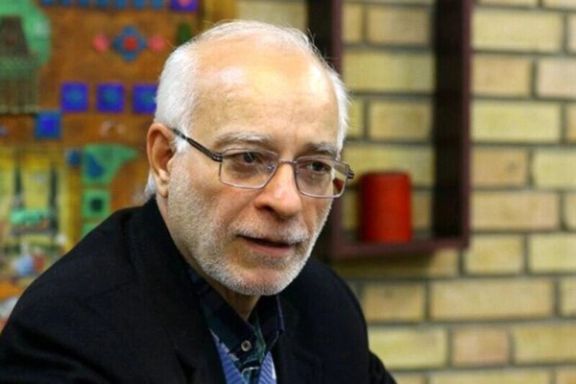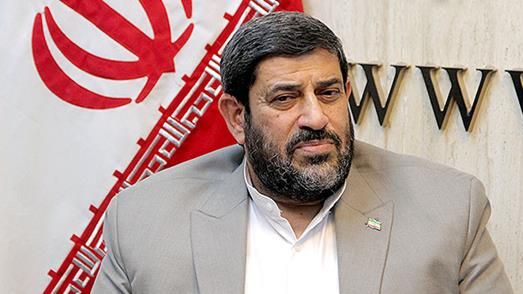Iran, US Play ‘Ping Pong Diplomacy’ Over Nuclear Agreement

Three weeks after the European Union August 8 circulated a ‘final text’ for reviving the 2015 Iran nuclear deal, analysts are left interpreting hints and leaks.

Three weeks after the European Union August 8 circulated a ‘final text’ for reviving the 2015 Iran nuclear deal, analysts are left interpreting hints and leaks.
A European diplomat told Iran International Friday there was nothing to add to Josep Borrell’s hope expressed Wednesday of reviving Iran nuclear deal in “coming days.” Borrell, the EU foreign policy chief, had said after a meeting of EU foreign ministers in Prague that near-17 months of talks had led to “common ground” and the basis for “an agreement that takes into account…everyone’s concerns.”
Since then, however, US State Department spokesperson Vedant Patel said late Thursday that Iran’s latest input, made Thursday, was “not constructive.” Politico cited a “senior Biden administration official” saying: “Based on their answer, we appear to be moving backwards.”
The latest stage in the 17-month effort to revive the 2015 Iran nuclear deal, the JCPOA (Joint Comprehensive Plan of Action), has essentially become a US-Iran, EU-mediate, indirect dialogue based on the EU text circulated August 8. Iran responded August 15, and then the US August 24. Iran’s latest input, sent as usual through EU mediators, was Friday described as “constructive” and “aimed at finalizing the negotiations” by Foreign Ministry spokesman Nasser Kanaani.
The Iranian website KhabarOnline has a piece based on a recent Clubhouse discussion in which Hasan Behestipour, political analyst at the Institute for Iran-Eurasia Studies (IRAS), called the current process “ping pong diplomacy.” While Behestipour acknowledged that in an ongoing diplomacy, “it is not possible to discuss the details,” he suggested that “media management” could be better.

‘People are waiting to know how long this takes’
“Whether we like it or not, these talks and negotiations have affected people’s lives [in Iran],” Behestipour said. “If America has given an answer, people are interested to know what the answer of America is generally about…People are waiting to know how long this process will take…I think that the evidence shows that both Iran and America need an agreement and both are trying to reach an agreement with maximum points.”
The weeks of ‘ping pong’ has given space for a wide airing of views, including from those wary of compromise. Mehdi Sa’adati, a hardliner parliamentary deputy who was a high-ranking IRGC commander for many years, quoted in the official news agency IRNA, argued Iranian negotiators needed to stand firm on verifying the lifting of US sanctions, ‘guarantees’ over Washington’s commitment to a renewed agreement, and clarity that any US sanctions against Iran’s Revolutionary Guards would not affect “other economic areas.”

Sa’adati also demanded the removal of the “safeguards issue,” an apparent reference to the International Atomic Energy Agency (IAEA) probe into mysterious uranium traces found in Iran and linked to pre-2003 work. This is line with public statements by Iranian officials, including President Ebrahim Raisi, that the IAEA enquiry should end before the JCPOA is revived.
But Sa’adati rejected the idea these issues might be dealt with “later,” insisting they had to be “clarified in these talks.” This put him at odds with a raft of recent reports suggesting the Iran-US talks were looking at a stage-by-stage return to the JCPOA, with the IAEA probe dealt with perhaps 120 days after the initial agreement to restore the JCPOA.
‘A much longer stick’
Sa’adati also criticized the IAEA director-general Rafael Mariano Grossi for his June visit to Israel, which holds nuclear weapons clandestinely and has refused to sign the Nuclear Non-Proliferation treaty. Iran has charged that the IAEA probe into Iran’s pre-2003 activities was closed in 2015 and then revived only after Israeli allegations.
In Israel, Ram Ben-Barak, head of the parliament’s foreign affairs and defense committee, told the 102 FM radio station that “a much better deal” was needed with “a much longer stick.” Ben-Barak, former deputy director of the Mossad extraterritorial force, emphasized the importance of the IAEA probe to get “honest and real answers about what they did there,” but also referred to an option of military force to end Iran’s nuclear program.
“What Israel wants is something better in place of this deal,” he said. “Something better means telling the Iranians ‘Listen, you will not have a nuclear program’.”